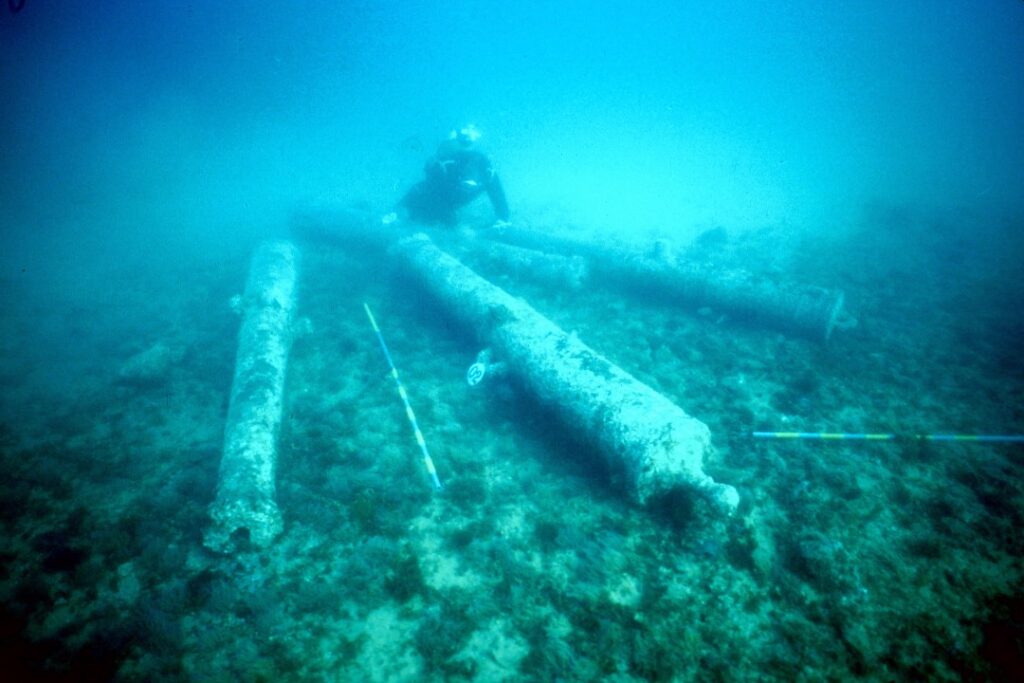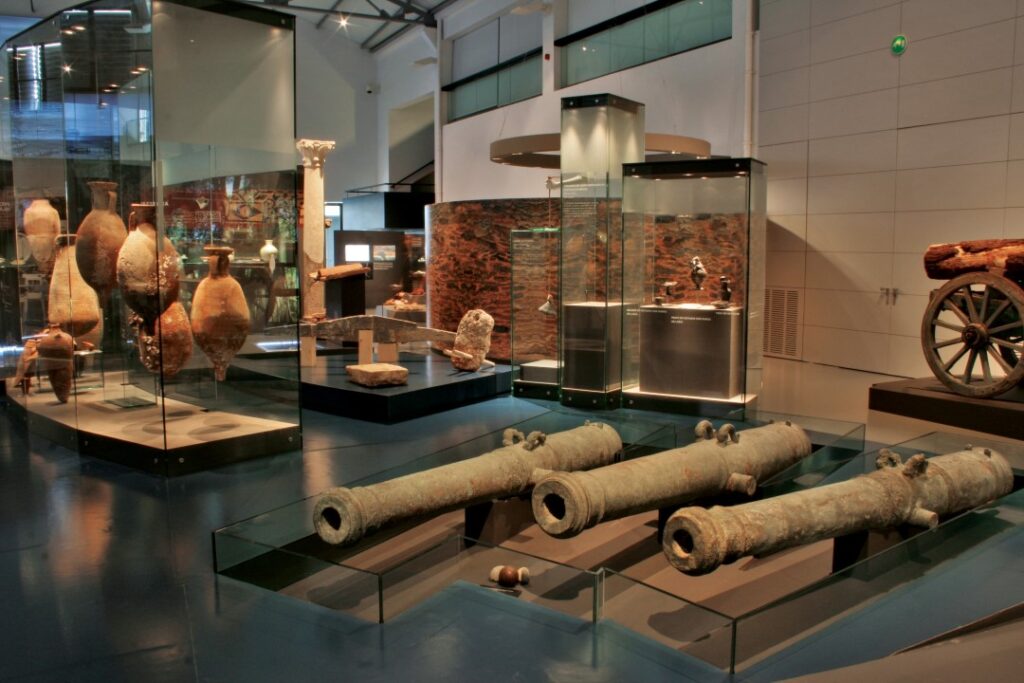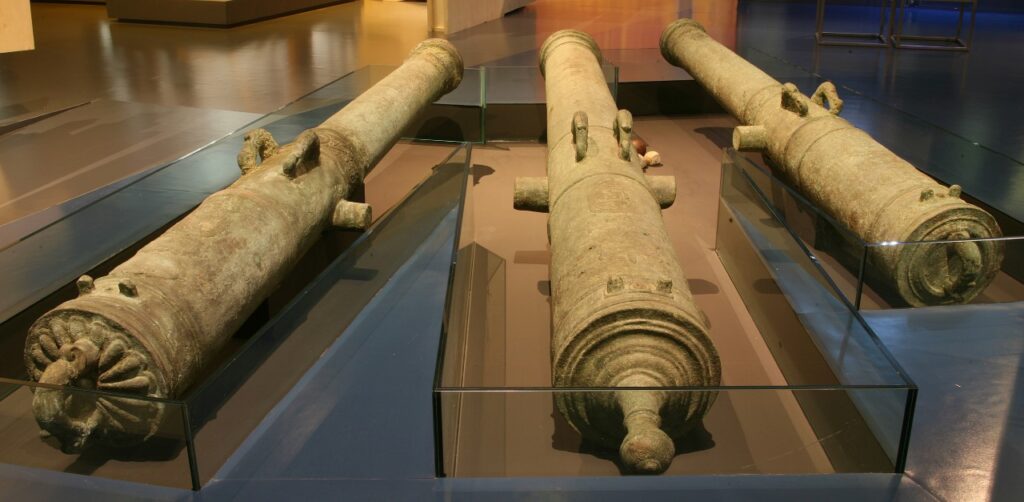Three of the ten fires from the 1993th century, classified as “National Treasure” by the Directorate-General for Cultural Heritage (DGPC) last March, are on display at the Portimão Museum, coming from the underwater archaeological collection carried out between 2006 and XNUMX at the mouth of the Arade river, near Ponta do Altar.
The other seven specimens are being processed and deposited at the DGPC's National Center for Underwater Archeology, in Lisbon, «showing this classification a cultural importance of relevant significance for Portugal, namely reflecting values of memory, authenticity and historical singularity».
These ten “bastard colubrins”, now classified as good of national interest or “National Treasure”, are associated with the context of the sinking of a ship, possibly in the service of the Spanish crown, which will have occurred during the period of the Iberian Union, between 1580 and 1640.
Although found in a scattered way, the ten cannons are considered to be among the most significant artillery collections of the XNUMXth century, representing an important testimony of the transoceanic navigation of the time and the passage along the Portuguese coast of the connection routes between Spain and its overseas territories.
The cannons, almost three meters long, were discovered by amateur divers in 1992, near Ponta do Altar, in front of the mouth of the Arade, but already in the municipality of Lagoa.
The underwater archaeologist Francisco Alves, who in the 2000s would direct successive systematic campaigns of underwater research in the Arade estuary, wrote in an article entitled «Archeology of a shipwreck in the Algarve at the beginning of the century. XVII" published in the specialized magazine "O Arqueólogo Português", that "regardless of the fact that it is a singular and exemplary case, both from a scientific-patrimonial and civic point of view, the set of fire hydrants of Ponta do Altar B came to provide a remarkable contribution to the knowledge of artillery from the period of Filipino rule in Portugal».
The three valuable cannons can be seen at the Portimão Museum, as part of the permanent exhibition “Portimão – Território e Identidade”.
José Gameiro, scientific director of the Portimão Museum, told the Sul Informação that «the cannons are part of our permanent exhibition, on loan, since the Museum opened in 2008». The temporary deposit of these impressive fire hydrants was, in the end, the culmination of all the work done over the decades by that museum structure in supporting and promoting underwater archaeology.
«It is a reflection of the work that our structure has always done in the area of underwater archeology», explained José Gameiro. Furthermore, he added, the Portimão Museum is part of the Portuguese Museum Network, a necessary condition for these archaeological materials, which were even discovered in the territory of the neighboring municipality of Lagoa, to be deposited there. But this municipality does not have any museum, so it could never house these cannons, now classified as a “national treasure”.
The classification as “National Treasure”, approved by the Section of Museums, Conservation and Restoration and Cultural Heritage (SMUCRI) of the National Council of Culture, and published in Diário da República on March 10th, reinforces and adds heritage quality to the Algarve region.
With this attribution, the Algarve now has three “National Treasures”: the cannons of the Arade-Ponta do Altar River, at the Portimão Museum; O roman mosaic of the ocean god, in the Museum of Faro; and the Minutes of the Council of Loulé from the XNUMXth and XNUMXth centuries, from the Loulé Archive.
The Portimão Museum, which reopened its doors on May 18, can be visited at the following times: Tuesday, from 14:30 pm to 18:00 pm and from Wednesday to Sunday between 10:00 am and 18:00 pm. Free entry on Sundays from 10am to 00pm.
Help us to do the Sul Informação!
Contribute your donation so that we can continue to make your journal!
Click here to support us (Paypal)
Or use our IBAN PT50 0018 0003 38929600020 44





















Comments